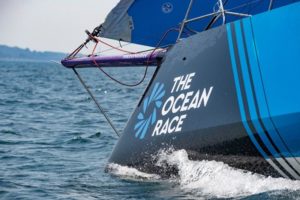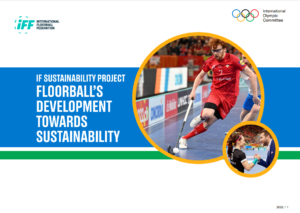
Heat stress from the environment can be detrimental to athletes’ health and performance.
No research, however, has explored how elite athletes conceptualize and experience heatwaves and climate change. Utilizing a qualitative approach, this study examined elite athletes’ perceptions, experiences, and responses to extreme heat in relation to climate change and explored the use of their platforms for climate activism.
Fourteen elite athletes from the United Kingdom, Australia, the United States, Sweden, and Canada, who represented 10 different sports including race walking, netball, and cricket were recruited using snowball sampling. Data were collected using semistructured interviews.
Thematic analysis revealed four broad themes. The first theme reflected uncertainty surrounding the causes of heatwaves and the impact of heat on athlete health and performance. The second theme reflected care and concern for sport and society, including concern for the well-being of athletes and spectators, the impact of heat on facilities and participation at the grassroots level, and how the nature of sport may change in the future.
The third theme referred to the implications of heatwave experience on athlete health and performance, and how experience affected individual and organizational preparedness. The fourth theme referred to enablers and barriers to successful climate change communication.
This study contributes to the sport ecology literature by introducing the subjective heat experiences of elite athletes. Educating athletes and event organizers about the impacts of heat on sport participation is imperative to increase awareness and, it is hoped, to limit illness for those training and competing.
Click here to read the full study




IOC announces shortlist for inaugural Climate Action Awards
Celebrating those in the Olympic Movement who are taking tangible steps to tackle the climate crisis, the International Olympic Committee (IOC) has announced the […]









Euro 2024: Uefa encourages teams to avoid flying between matches to reduce carbon impact
Teams at Euro 2024 will be expected to travel to group-stage matches by coach or train instead of flying, to reduce their carbon impact. […]


Nature is at the heart of what we do -the race-track we compete on and the wind that powers our boats - but it is deteriorating fast.
We’re harnessing the ambition of the Race to be a force for change and drive the protection and restoration of our seas. We want an ocean that is healthy and full of life. This ultimately benefits nature and us all.
We aim to drastically reduce our plastic footprint and commit to collecting separately, measuring,
reporting and balancing any unavoidable single-use plastic through investing in social plastic offsets.
This guide has been produced to share our knowledge and learnings on how to reduce single use plastic at sporting events (well - at all events!)
We hope it inspires you to take action to turn the tide on plastic at your event.
Meegan Jones
Sustainability Programme Advisor
The Ocean Race





Knowledge is Powder: The Education Drive for Sustainable Snowboarding
While it’d be a stretch to call snowboarding the main cause of global warming, the truth is that we haven’t actually measured its carbon […]




We have today launched a new five-year sustainability strategy, setting out our plan to make a positive impact on the environment and the communities in which we serve.
The new strategy, titled ‘Playing for the Future’, will drive forward our environmental ambitions until 2028, and will ensure that we continue to be a role model in shaping a positive football future for all.
The strategy has been created through extensive consultation with a wide range of football stakeholders and environmental experts, and focuses on three core areas:
- SHOOT FOR NET ZERO – fight climate change and reduce emissions
• Achieve net zero status by 2040
• Invest over £35m to deliver the 2040 ambition
• Work towards reducing CO2e emissions 50% by 2030 from a 2019 baseline, reducing electricity consumption by 30% by 2028 from a 2019 baseline, and reducing gas consumption by 20% by 2028 from a 2019 baseline
- SAVE OUR RESOURCES – optimise resource consumption
• Reduce resource consumption across Wembley Stadium and St. George’s Park, and embed more sustainable practices across the organisation
• Minimise impact of waste through procurement choices, avoiding waste, identifying reuse opportunities and maximising recyclability
• Reduce water consumption by 30% by 2028 from a 2019 baseline
• Protect biodiversity across all FA venues – animals, wildlife, plants, micro-organisms
- MAKE AN IMPACT – deliver and govern change across football
• As the governing body of English football, The FA is in a unique position to drive wider environmental and societal change across clubs, leagues, and with partners
• The FA will create the operational framework to embed this strategy across the whole organisation, including its facilities, and increase awareness and environmental sustainability practices across football, whilst governing and supporting wider change
• The strategy will also ensure FA partners are aligned and committed to the sustainability ambitions
The launch of this new sustainability strategy builds on the extensive work across Wembley Stadium and St. George’s Park to drive operational sustainability efforts, particularly around waste, food and energy. The strategy will be reviewed every two years and further updates will be provided in due course.
Mark Bullingham, The FA’s Chief Executive, said: "The climate crisis presents one of the most significant challenges of our lifetime, and we are determined to play our part in inspiring positive and meaningful change. Through our new five-year commitment, we want to make tangible progress through our own sustainability initiatives, while raising awareness, and bringing the wider football community with us on this journey.
"We look forward to working with the leagues, clubs, County FAs and our partners to harness the unique power of football so that together we can have a beneficial impact on the planet and a positive influence for future generations."
Ruaidhri Dunn, The FA’s Head of Procurement and Sustainability, said: "We are delighted to launch our new five-year Playing for the Future sustainability strategy during Net Zero Week, which sets out our clear direction of travel to drive positive change for the environment.
"We are very proud of our achievements in recent years to become more environmentally friendly, including Wembley Stadium being awarded the highest standard of sustainability by the ISO, however we want to make further progress. Our new strategy focuses on a number of key areas including reducing emissions, optimising resource consumption, plus governing and supporting wider change across football – and we look forward to driving forward with the next phase of our sustainability efforts."
Useful resource : FA Sustainability Strategy 2028




Hungary NOC sustainability strategy
The Hungarian Olympic Committee (HOC) is one of the mentee-NOCs that participated in the three-year mentorship programme As Sustainable As Possible (ASAP). Inspired by […]

As an Olympic International Federation, the Fédération Internationale de Hockey (FIH) is following the UN and the IOC’s leadership in recognising sport as an important enabler of sustainable development and peace.
As part of its Corporate Responsibility and good governance, FIH has released a new Sustainability Strategy in 2022, with the aim of encouraging the global hockey community to contribute positively to the FIH’s development goals.











Floorball’s development towards sustainability
The general concerns around climate change and the desire to take responsibility have sparked stronger development of sustainability initiatives within floorball, and resulted in the International Floorball Federation (IFF) signing the UN Sports for Climate Action Framework (S4CA) in 2019. That same year, the IFF started preparing its Strategy for 2021-2032 – “Strengthening the Foundations” – which includes sustainability as one of the main focus areas.









World Sailing and Barcolana join forces to promote participation, inclusion and sustainability
World Sailing, the sport’s world governing body, has joined forces with Barcolana, the largest sailing race in the world with tens of thousands of […]



